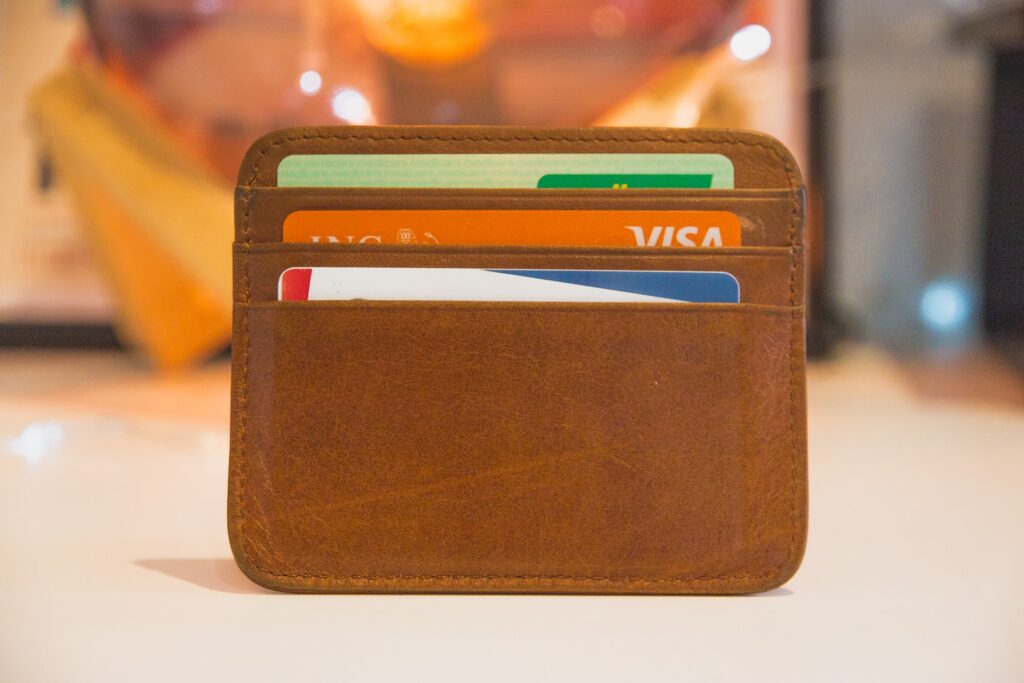
It might be difficult to choose a credit card. Selecting the right option for you might be difficult given the abundance of possibilities.
There are several things to consider before picking a credit card, whether you’re searching for one that gives incentives or has minimal costs.
We’ll look at 10 key suggestions in this post for selecting the finest credit card for your financial condition.
1. Identify Your Spending Habits and Needs
The first step in selecting the best credit card is identifying your spending habits and needs. Do you travel and eat out often? Want to transfer credit or make bulk purchases? Understanding your spending habits and needs can help you narrow down your options and select the card that best benefits your lifestyle.
2. Consider Your Credit Score and Credit History
Your eligibility for a credit card and the interest rate you’ll pay depend heavily on your credit score and credit history. Examine your credit score and examine your credit record for any mistakes or inconsistencies before applying for a credit card. Before requesting a regular credit card, you might want to think about a secured credit card or concentrate on rebuilding your credit if you have a poor credit score or a history of missing payments.
3. Compare Interest Rates and Fees
Interest rates and fees are the main considerations when choosing a credit card. Look for cards with low interest rates, especially if you plan to carry credit. You should also consider the annual fees and late fees.
4. Look for Rewards and Perks That Suit You
Many credit cards offer rewards and perks, such as cashback, travel miles, or points. Think about the rewards and privileges that would have been of greatest value to you, because of your spending habits and needs. For example, if you frequently travel, look for a credit card that offers travel rewards or perks, such as free checked bags or airport lounge access.
5. Choose the Right Type of Credit Card for Your Needs
There are many types of credit cards, including reward cards, balance transfer cards, and secure cards. Select the credit card type that fits your needs and financial situation. If you are looking to transfer funds, consider a low interest balance transfer card. If you want to build credit, consider secure credit cards.
6. Check for Introductory Offers and Promotions
Many credit cards offer referral offers and promotions. B. 0% Annual Rate on Purchases or Balance Transfers for a Limited Time. Take advantage of these offers. But read the fine print to understand when the introductory period ends and what the interest rate will be after the promotion ends.
7. Research the Credit Card Issuer and Customer Service
Before choosing a credit card, research the credit card issuer and their customer service reputation. Look for a reputable issuer with good customer service ratings to ensure that you’ll receive support when you require it.
8. Read the Fine Print and Understand the Terms and Conditions
Before applying for a credit card, it is important to read the fine print and comprehend the terms and conditions since credit card terms and conditions might be complicated. The interest rate, fees, rewards program, and payment due dates are just a few of the factors to pay attention to.
9. Consider the Credit Limit and Your Ability to Repay
Consider the credit limit and your capacity to pay off the bill when selecting a credit card. Apply for credit cards only whose limits match your resources and capacity to pay back the balance. Keep in mind that utilizing credit excessively might harm both your financial situation and credit score.
10. Review Your Decision Regularly and Make Changes as Needed
Finally, it’s crucial to frequently check your credit card selection and adjust it as necessary. You may need to modify your credit card if your financial circumstances and spending patterns change over time. The terms and conditions, fees, and rewards programs of credit card issuers may also change, so it’s crucial to keep informed and make any necessary adjustments.
Conclusion
You may choose the credit card that will work best for your demands and financial condition by paying attention to these 10 crucial pointers. Choose the proper sort of credit card, consider your spending patterns and needs, compare interest rates and fees, look at your credit score and credit history, identify the features and perks that are best for you, and take advantage of referral offers and promotions. Learn more, speak with your credit card company’s customer support, read the bylaws and comprehend their terms and circumstances, think about your credit limit and your capacity to pay, constantly examine your choices, and make adjustments as needed. To establish credit, receive rewards, and achieve your financial objectives, use your credit card wisely and using the knowledge provided in this guide.
